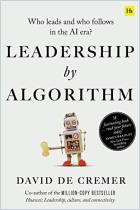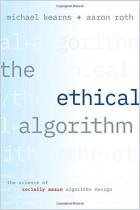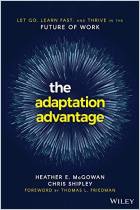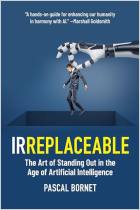Futurist consultant Mike Walsh warns business leaders that the algorithmic age is coming, ready or not. An “algorithmic leader” lets machines do what they do best: find connections in the data to provide insight into customer needs. Leaders then focus on connecting platforms, people and partners. Machines will augment the work humans already do, and leaders will be designers of exceptional experiences to their customers. Algorithmic leaders connect work to their people’s identity and purpose.
Algorithmic leaders adapt their skills to the complexities of the machine age.
Algorithms are taking over the world, building the “bridge between computation and real-world challenges.” Information about the world today finds its expression in data that reside in almost all human interactions. Leaders who came of age in the analog era may worry whether their skills remain relevant. Ecosystems are rapidly displacing familiar hierarchies. Effective algorithmic leaders understand what generates true value. The best data, for example, are not deciding factors. What matters is the capacity to “connect people, partners and platforms.”
Two French philosophers, Gilles Deleuze and Félix Guattari, argued for discarding the tree as an analogy for the growth and dispersal of knowledge. They favored the “rhizome,” a tangled underground mass that forms a vast web, with nodes that send shoots to the surface. It has multiple “entry points,” and stores nutrients in its nodes to efficiently distribute energy. To be a “leader in the rhizome,” reject outmoded structures like the tree. Algorithms facilitate the rhizome model for business because their...
A pioneer in digital space since the 1990s, Mike Walsh founded and ran Jupiter Research – one of the first research agencies to track the early adoption of e-commerce and digital business models by online consumers – in the Asia Pacific.


















Comment on this summary or Démarrer une discussion